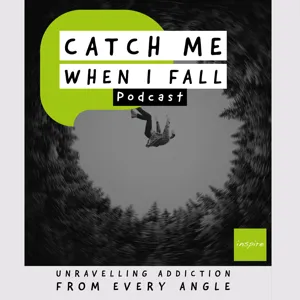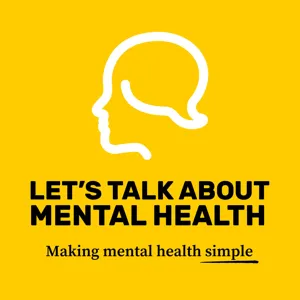Podcast Summary
Coping with emotions during times of crisis: Acknowledge emotions, practice mindfulness, engage in self-care, stay informed, find balance, focus on what we can control, and consider donating to charities.
During times of crisis and tragedy, such as the ongoing conflict between Russia and Ukraine, it's natural to feel a range of challenging emotions like fear, grief, anxiety, and helplessness. It's important to acknowledge these emotions and find healthy ways to cope with them. This can include practicing mindfulness, engaging in self-care activities, and staying informed without becoming overwhelmed by the news. Additionally, for those witnessing the conflict from afar, it's crucial to find a balance between staying engaged and supporting those affected, while also taking care of oneself. It's also important to remember that these events are not unique in human history and that regular people have long been used as pawns in larger power struggles. In the face of such adversity, focusing on what we can control in our own minds and lives can help us navigate these challenging times. Finally, consider donating to charities supporting those affected by the conflict to offer some tangible help.
Experience calming practices during stressful times: Practicing 3-breaths focusing on self-care, caring towards others, and being cared for can help manage stress and find relief.
During times of anxiety and stress, taking a moment to focus on calming practices can be helpful. Dan led us through a simple 3-breath practice, which involved focusing on breathing while feeling the chest expand, breathing while feeling caring towards others, and breathing while feeling cared for. This practice, which was experiential and quiet, allowed us to pause and marinate in feelings of caring and being cared for. Our brains are wired to process threats first, but taking time for practices like this can help us manage stress and find relief.
Pause and Breathe for Clear Decision Making: During stressful times, take a pause to breathe and access logical thinking for clear decision making. Avoid constant information consumption and give yourself space to think before acting.
During times of stress or uncertainty, taking a moment to pause and breathe can help us access the logical parts of our brain and make deliberate decisions. This pause also allows us to regulate our consumption of information and avoid jumping to conclusions. While it's important to stay informed, it's equally important to take a step back and consider the situation clearly before taking action. The pause can be as simple as a few deep breaths, and it can help us avoid feeling overwhelmed and make thoughtful decisions. Additionally, it's essential to be aware of the tendency to constantly seek out new information and resist the urge to act immediately in response to every development. By taking a pause, we can give ourselves the space to think and respond effectively.
Pause and Feel Your Feelings: Pausing to feel your feelings authentically grounds you, allowing clearer actions during crises or intense emotions. Engage the insula for a stable foundation.
During times of crisis or intense emotions, taking a moment to pause and feel your feelings can provide a stable foundation for moving forward. This practice, known as "feeling your feelings," allows us to accept and witness our experiences without judgment, even if they are unpleasant or painful. By tuning into our internal sensations, such as our breath, we can engage the insula part of the brain, which acts as a circuit breaker and helps us stay present. This authentic connection with our emotions gives us a powerful grounding, enabling us to take action with greater clarity and effectiveness. It's essential to remember that we cannot choose the times in which we live, but we can choose how we live with those times. Embracing our feelings, rather than pushing them away, can lead to a cleaner emotional landscape and a more grounded response to the challenges we face.
Balancing Empathy and Self-Care During Tragic Times: Focus on self-care through hydration, nutrition, rest, and connecting with others for emotional support during times of tragedy and personal hardships.
During times of tragedy and difficulty, it's essential to find a balance between empathy and self-care. Overwhelming empathic grief can incapacitate us, but compassion and self-compassion are reparative and refueling. When the world feels overwhelming, focus on simple self-care practices like hydration, nutrition, and rest. Additionally, connecting with others through hugs, sympathy, and concern can provide support and solidarity. These practices are not only beneficial during global crises but also during personal hardships. Remember, you cannot pour from an empty cup, so taking care of yourself first allows you to be an asset to yourself and others.
Navigating Life's Challenges with Reliable Resources: Explore the ZOE Science and Nutrition podcast for health advice and the Doctor John DeLaney Show for emotional support. Humor can also aid in coping with serious situations.
When it comes to navigating life's challenges, whether they're related to personal health or global events, having access to reliable and practical resources can make all the difference. For health-related matters, the ZOE Science and Nutrition podcast, hosted by professor Tim Spector, is a top-notch resource for making informed decisions about your wellbeing. Meanwhile, the Doctor John DeLaney Show offers a supportive and direct approach to addressing emotional and mental health issues. Humor, as a resource, can also play a crucial role in coping with serious situations. It's essential to remember that finding moments of levity and connection does not diminish the gravity of the situation, but rather helps us manage it more effectively. So, whether you're dealing with a cancer diagnosis, skin issues, or just trying to make sense of the world, remember that there are valuable resources out there to help you along the way.
Embrace humor and seek truth: Humor helps us cope with challenges, while truth-seeking strengthens our understanding of the world and relationships
Finding moments of levity and space, as well as seeking out the truth, are essential for navigating life's challenges. The power of humor, even in difficult situations, can help us keep going. Additionally, acknowledging the limits of our knowledge and taking the time to get educated before forming opinions is a valuable practice. Seeking the truth, being open to correction, and collaborating with others are also crucial for understanding the world around us. In unhealthy situations, whether in families or larger systems, attacks on truth tellers and a refusal to seek out facts can be harmful. By prioritizing truth and learning, we can build a stronger foundation for our understanding of the world and our relationships within it.
Stay informed to make informed decisions: Stay open to learning from credible sources, acknowledge limitations, and practice intellectual humility for thoughtful choices and meaningful conversations.
Staying informed about world affairs can provide a solid foundation for understanding complex issues and making informed decisions. This doesn't mean becoming an expert in every topic, but rather being open to learning from credible sources and acknowledging the limitations of our own knowledge. Intellectual humility is an important aspect of this process, allowing us to be humble about what we don't know and continually seek out new information. The Greater Good Science Center at UC Berkeley is even conducting research on intellectual humility. By taking the time to learn and being aware of our own limitations, we can make more thoughtful choices and engage in meaningful conversations.
Create a crisis management plan for emotions and actions: During uncertain times, make a plan for self-care, setting boundaries, staying informed, and preparing for unlikely scenarios to manage emotions and actions effectively. Avoid harmful performative actions.
During times of crisis or uncertainty, it's essential to make a plan to manage your emotions and actions effectively. This plan can include taking care of yourself, such as setting boundaries with news consumption, and supporting those around you. Additionally, considering unlikely but significant scenarios and preparing for them in simple, doable ways can provide peace of mind. Remember that plans are subject to change, but committing to one and finding release in it can help alleviate internal processing and anxiety. Avoid performative actions, like trauma voyeurism or doomscrolling, as they can be harmful and give a false sense of control. Stay informed, but also prioritize self-care and community support.
Find ways to take action during crises: Taking small or significant actions can reduce anxiety, give us a sense of agency, and collectively contribute to larger historical events.
Taking action, no matter how small, can help reduce anxiety and give us a sense of agency during times of crisis. This could be as simple as brushing your teeth or supporting a cause you care about, or as significant as advocating for democratic values and standing up against authoritarianism. By finding ways to make a positive impact, we can reclaim our ability to influence the world around us and feel more empowered. This is especially important during major crises when causes we care about may be overlooked. Remember, every action counts, and collectively, our actions can contribute to larger historical events.
Finding personal agency through principles and values: During hardships, staying true to principles and values can provide comfort and positively impact self and others. Practicing pause, focusing on good intentions, and making positive changes can help manage emotions and make best decisions.
During difficult times, finding personal agency through principles and staying true to our values can provide a sense of freedom and comfort. Our actions, like a vow, reflect our commitment to truth and can positively impact ourselves and others. It's important to validate the challenges we face and remember that many people throughout history have navigated hardships. Practicing pause, focusing on good intentions, and making positive changes can help us manage emotions and make the best decisions for ourselves and those around us. By staying grounded in our principles and values, we can find meaning and hope in even the most challenging times.
Pausing to Care for Yourself During Difficult Times: Pause, feel emotions, resource yourself, educate, make a plan, find agency, contribute, small actions make a difference.
During times of pressure and difficulty, taking a moment to pause, feel your emotions, resource yourself, and become educated can help maximize your chances of success and well-being. It's important to neither deny nor catastrophize emotions but instead find the middle path. Self-care is not selfish, and it allows us to contribute more to others. Educating ourselves and making a plan for action can help us feel more agency and less helpless. Even if we can't do much about distant issues, there are always things we can do to make a difference closer to home. Remember, small actions can still have a significant impact. Check the episode details for resources and charities to support.






